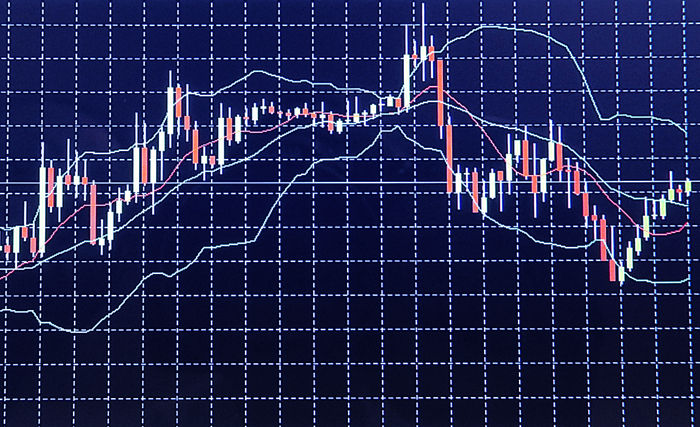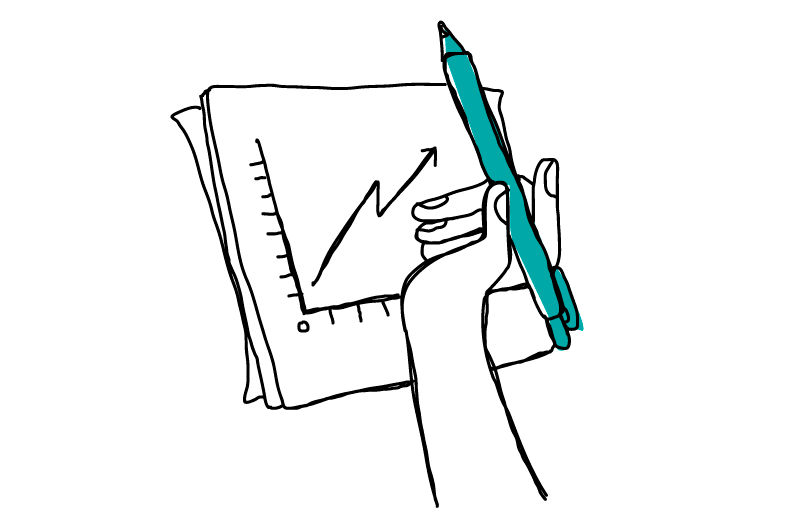The Canadian market may disappoint some investors in 2020, while returns internationally are expected to be “modest.” But the biggest question mark remains the uncertainty about ongoing trade wars and other issues with China, according to Franklin Templeton’s 2020 Outlook.
In outlining his predictions, Ian Riach, senior vice president, portfolio manager, Multi-Asset Solutions at Franklin Templeton Investments, said he’s cautious about Canadian equities, neutral on Canadian bonds and expects a weaker loonie in the months ahead.
Household debt
Household debt in Canada continues to be a major issue with the average person owing more than $1.75 for each dollar earned, compared to about 90 cents back in 1990, Riach told the early December Outlook session.
But as Canadians pile up debt, just south of the border Americans are deleveraging, a major reason why Riach said his firm is currently favouring U.S. equities over their Canadian counterparts.
As well, the Canadian stock market’s continued concentration of financial stocks could translate into negative implications for banks while its heavily weighted resource sector – which includes not only oil and gas, but also forestry and mining companies -- could face ongoing global challenges, signalling bumpy times ahead, said Riach.
“We believe that these are not just cyclical challenges, but more structural in nature that could have longer term effects on the Canadian economy,” said Riach.
On the other hand, he said these issues have made valuations in Canada fairly attractive compared to those in the United States. And even though the Bank of Canada rate remained at 1.75 per cent in December, it does have room to lower rates.
Internationally, overall returns over the next 7-10 years are expected to be modest, said William Yun, executive vice president and investment strategist with Franklin Templeton Multi-Asset Solutions in New York.
It may come to the point where advisors need to take a second look at some clients’ portfolios to ensure they receive the gains and cash flow they require.
Multi-asset approach
“If you’re looking at your typical 60/40 equities/fixed-income portfolio you may not be able to achieve your required rates of return,” cautioned Yun. “We’re recommending a multi-asset approach to help achieve the required rates of return.”
Global growth and inflation – the two drivers that set capital market expectations over the next 7-10 years -- are expected to be about 3%. “These are very modest compared to what we’ve seen in previous cycles prior to the global financial crisis. But we aren’t expecting a recession as many have predicted for 2020. We think in fact that there’s [only] a one-in-five chance of a recession in 2020.”
One of the “culprits” holding down global growth has been trade wars, specifically the one between the U.S. and China, which recently reported its export volumes to the U.S. were down about 23% year-over-year, said Yun.
Business confidence
The battle between the two has slowed global growth, hurt profits and investments for companies around the world and eroded business confidence.
“And if you don’t have a lot of confidence and there’s uncertainty in terms of where this trade war is going that’s going to lead to reduced spending which could impact our capital investments which could impact profits, job growth, wages, etc.”
Just a few days after the Outlook conference, the U.S. reached a deal in principle with Beijing on trade, with the U.S. agreeing to reduce some tariffs on Chinese goods and delay other tariffs. In exchange, China said it would buy US$50-billion worth of agricultural purchases in 2020.
As for Canada, it needs to revise its engagement strategy with China, holding firm on its values for the long term, yet at the same time, working with the Asian country on issues such as climate change and nuclear proliferation, said Guy St. Jacques, a former Canadian ambassador to China.
“We must recognize that our capacity to influence China is very limited, but at the same time we should not compromise on our values,” said St. Jacques. Specifically, he said Canada needs to remain firm when it finds instances of interference in Canadian affairs.
Relations strained
Canada’s relations with China have been strained for more than a year – ever since Meng Wanzhou, the chief financial officer of Huawei Technologies was arrested in Vancouver at the request of the United States, where she has been charged with bank fraud. Not long afterwards, China detained Canadians Michael Kovrig, a former Canadian diplomat and businessman Michael Spavor.
“We need a realistic – not a romantic – China policy,” said St. Jacques. “We must recognize that our capacity to influence China is very limited. But at the same time we should not compromise on our values. We need to remain firm and react quickly when we find instances of interference in Canadian affairs.”
China’s demanding middle-class of 400 million people has been growing, an excellent scenario for potential trading partners. But St. Jacques said China cannot “rag the puck” and delay opening its economy to foreign companies much longer.
“Therefore the strategy going forward should be [for Canada] to work with allies to build a united front of like-minded partners to ensure the multilateral system is protected and that rules and obligations apply to all. The goal should be to establish real reciprocity. This will force China to deliver, in a meaningful way, on the commitments it made when it joined the WTO in 2001.”
He said that Canadian firms contemplating working with China over the next five to 10 years will have a good chance to participate in China’s growth, noting that Tim Horton’s has already started making inroads, opening its first restaurant in Shanghai almost a year ago. The coffee chain expects 1,500 locations to open across China over the next decade.
In fact, St. Jacques said Canadian firms that invest in China and create jobs there will end up with a good “insurance policy” that will protect Canadians growing their businesses there.














